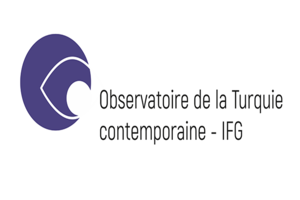Les théories conspirationnistes: passe temps favori de la Turquie
The Tin-Foil Hats Are Out in Turkey
These theories are diverse and colorful, and they purport to explain everything from terrorist attacks in Turkey to the Syrian civil war to economic stagnation. But they all fit into one dominant political narrative, which typically goes like this: Under Erdogan’s leadership, Turkey began to rise as a global power after a century of frailty. Since this New Turkey represents global justice for all the downtrodden, all the dark masters of the world are now alarmed by its glorious march. That is why they are using all their pawns against Turkey to defame, weaken, or destabilize it.
This basic narrative, which is reiterated every day by hundreds of pro-government pundits and talking heads, can be applied to almost every situation. The “pawns” in question can vary greatly: They can be Kurdish separatists leading a terrorist campaign against Turkey on behalf of powers as diverse as the United States, Israel, or Russia. They can be Erdogan’s political opponents or even dissidents within his party. Or they can be the Gulenists, a cult led by the U.S.-based Turkish cleric Fethullah Gulen, who are now seen by almost all Turks as the main culprit behind the failed coup attempt of July 15. Even the Islamic State is seen by many pro-Erdogan Turks as a Western creation to defame Islam and create pretexts for imperialist designs in the Middle East.
A concept that Erdogan introduced in 2014 gave all these conspiracy theories an additional boost. The president described a “mastermind” — or, more literally, a “supreme intellect” — who was secretly pulling the strings in the region. Accordingly, the political developments in the Middle East, such as the sectarian wars in Iraq and Syria, are orchestrated by an invisible authority that also wants to keep Turkey down.
Some of these conspiracy theories are based on misinterpreted facts. The support the United States gives to Kurdish rebels in Syria in the framework of fighting the Islamic State, for example, has been taken out of context and is seen as evidence for a decades-old American scheme to “create a puppet Kurdish state.” Other conspiracies are based on pure imagination, such as the ludicrous claim that an academic conference held near Istanbul that happened to coincide with the failed coup attempt was the “headquarters” of the plot.
Similarly libelous fantasies included the contention that the Istanbul-based Ecumenical Patriarchate was behind the coup, or that former National Security Advisor Zbigniew Brzezinki blamed the CIA for the plot. Notably, the latter two examples were invented by Moscow-based, pro-Kremlin websites, which apparently figured out that Turks’ hunger for conspiracy is a good opportunity to stoke anti-American sentiments.
Having said all that, one must also be fair to Turkey. In the past year, the country has suffered more than a dozen devastating terror attacks by the Kurdistan Workers’ Party (PKK) and the Islamic State. Two of its neighbors, Syria and Iraq, spiraled deeper into civil wars that have sent almost 3 million refugees into Turkey. All these problems had their own complex reasons, but it was easy for the nation to perceive them as a well-crafted plot against the homeland.
Turks also suffered the bloody coup attempt of July 15, confirming longtime worries about a shadowy “state within the state” organized by the Gulenist cult. This peculiar threat was pointed out for decades by Turkey’s secularists, then by Erdogan’s Justice and Development Party (AKP) in the past three years — but few imagined that it could come to the point of launching a military coup.
The staggering scale of the conspiracy convinced some that other conspiracy theories must be real, too.
The staggering scale of the conspiracy convinced some that other conspiracy theories must be real, too. Nor was this the first time that a hidden elite tried to guide Turkish politics from behind the scenes: Even before the Gulenists, Turkey had other elements of “deep state” that used state power in criminal ways, giving the nation a deeply cynical view of the world.
Conspiratorial thinking is not exclusive to the current ruling elite. The Erdoganists’ secular predecessors, the Kemalists, had their share of paranoia. In fact, a decade ago, when Erdogan and his AKP supported European Union membership and championed liberal reforms, the Kemalists were obsessed with Western conspiracies. A series of best-sellers in 2007 even depicted Erdogan and other AKP grandees as “crypto Jews” working with “global Zionism” in order to destroy Ataturk’s secular republic.
It was only after spending a decade in power that the AKP began to imitate the paranoia of its processors. When Erdogan saw secular Turks protesting his assertive cultural conservatism in June 2013, for example, he identified the cause of their anger not in his policies, but in an “interest rate lobby” that somehow controlled the chaotic masses.
The Gulenists, who were once Erdogan’s best allies against the secularists, are conspiracy-obsessed. Their main TV channel, STV, used to air a massively popular series named One Turkey, which depicted a dark Masonic cabal focused on making nefarious plans to undermine the country. Later, the Gulenists advanced an Iranian conspiracy against Turkey, depicting senior AKP members as “Iranian spies” and even preparing a trumped-up indictment in early 2014 to arrest them as such. (It seems that at a time when the AKP depicted the Gulenists as “Zionist spies,” the Gulenists went for the second-best Sunni boogeymen after the Jews: the Shiites.)
In short, conspiratorial thinking is a national problem in Turkey. And it has detrimental consequences for the whole nation.
One of these consequences is that Turks have become very distrustful of one another.
The country ranks as one the lowest in the world in terms of interpersonal trust.
The country ranks as one the lowest in the world in terms of interpersonal trust. The result is a bitter political scene where compromise is always viewed as weakness, and chest-thumping is the only game in town.
Conspiratorial thinking deprives Turkey of the capacity to solve its problems. Take the violent Kurdish nationalism spearheaded by the PKK, which has been designated by Turkey and the United States as a terrorist group. The conspiratorial narrative says the PKK is nothing but a “pawn” used by greater powers to “divide and conquer” Turkey. If you believe this, the only thing you can do is “stay defiant” and fight the PKK forever — as the government does now, after a failed effort to make peace. But if you see the PKK as an agent in itself — with its own goals, motivations, strengths, and weaknesses, as well as its millions-strong public support — you can develop policy options, ranging from political dialogue to building a broader international coalition against it, to defuse the threat it presents.
This obsession with conspiracies becomes a self-fulfilling prophecy. As the late great Karl Popper pointed out, when conspiracy theorists take over the reins of power, they end up by governing by conspiracy. Since the world is full of conspiracies against them, they reason, it would only be fair to “use the enemy’s weapon against itself” — by launching their own conspiracies.
A recent affair presents an interesting case in point: Gulenists allegedly stole the questions of the Public Personnel Selection Examination, by which Turkish institutions chose new government officials. They then distributed the answers to their members so they could pass with flying colors and better infiltrate key institutions.
The crux of the matter, though, is the way the Gulenists justified this. As a defector from the group told the police after the scam was brought to light, the argument was that “there are many traitors, Christians, Jews, Freemasons who already do this,” so the Gulenists had to compete with these nasty people in their own dirty game.
That is why as long as Turkey’s obsession with conspiracies endures, its dirty games may also endure.
Unless Turkey decides to opt for a political system and culture based on more trust and transparency, it will always be a restless nation at war with itself.
Unless Turkey decides to opt for a political system and culture based on more trust and transparency, it will always be a restless nation at war with itself.
So if we Turks really want to be a world power, we should begin by considering that our problems may stem not from conspiracies, but from complex domestic and international dynamics and our own mistakes. Others, especially Western powers, have a lot to account for — from a horrible colonial legacy to meddling in the Middle East to hypocritical double standards in the service of “universal” morals. But Turkish critiques of these Western sins will not help anything if their only purpose is to whitewash our own.
Deep down, we Turks must face the real reason we love conspiracy theories so much: It makes us feel important. If the world is conspiring against us, we must be really special. It is an interesting way of proving greatness — not through your achievements, but through the plots that have supposedly sabotaged those achievements. It is, I believe, the way we Turks make up for our lost Ottoman grandeur. But real grandeur lies in self-confidence, not insecurity, and the maturity to look into the mirror rather than only blaming others.



